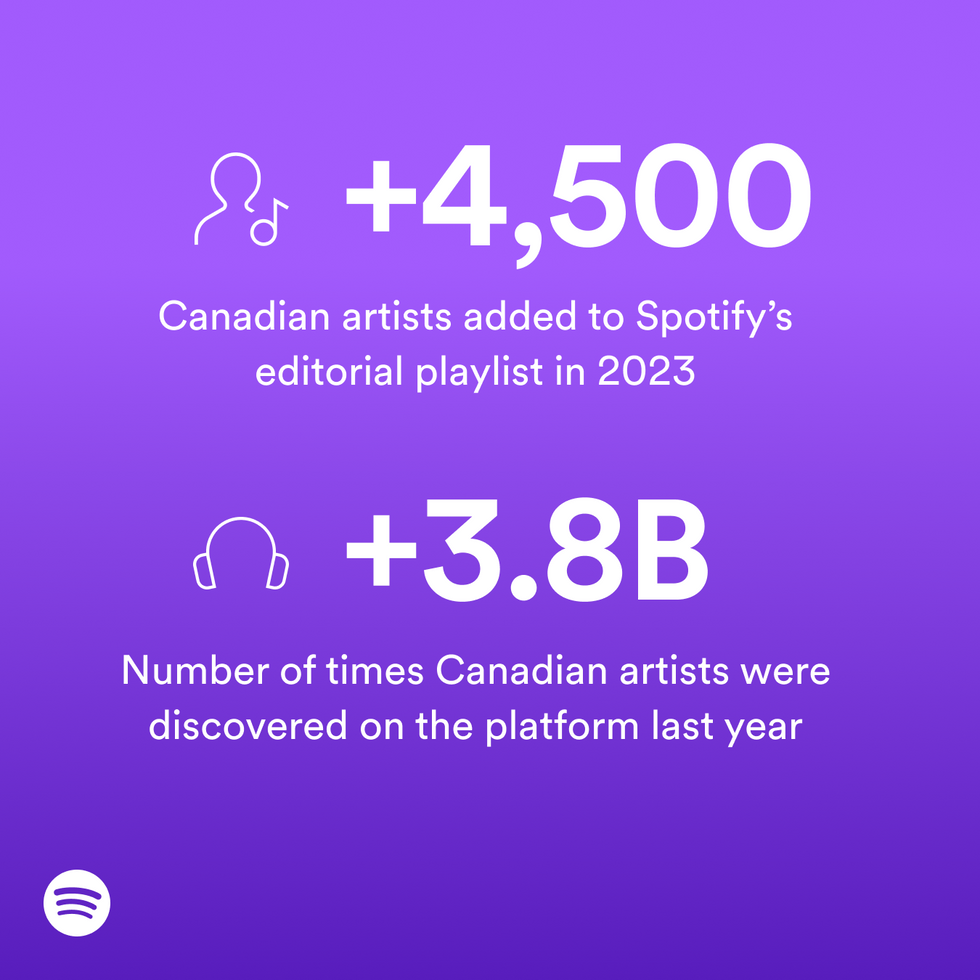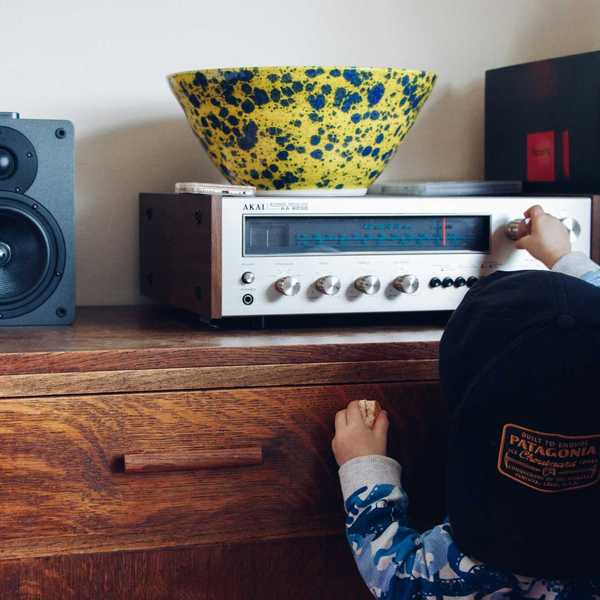Canadian Artists Were Discovered More Than 3 Billion Times on Spotify Last Year
Following the release of its Loud & Clear streaming data report last month, the major streaming service has shared new findings about how Canadians are faring on its platform. The data comes as Spotify faces criticism of its new royalty model.

Canadian artists are getting discovered on Spotify.
The streaming service has shared new data about how Canadians are faring on the platform, highlighting that Canadian artists were discovered 3.8 billion times last year. 4,500 Canadian artists were added to Spotify's editorial playlists.
The Canadian-specific data follows the release of Spotify's Loud & Clear streaming report last month. As the platform faces criticism over its royalty model, this new Canadian data also sheds light on the revenues Canadian artists are generating. According to the platform, the number of Canadian artists generating over $50K and $100K annually in revenues has doubled, at both levels, since 2017.
A staggering 92% of royalties generated for Canadian artists were from listeners outside of Canada. That data is consistent with Music Canada's streaming data report, released this week, in which economist Will Page estimates that for every play Canadian artists are receiving within Canada, they're generating 10 plays abroad. Page emphasizes the importance of government support for exporting Canadian musicians, to tap into this international demand.
About 40% of Canadian royalties went to independent artists and labels, matching Loud & Clear's finding that roughly half of royalties generated last year were by indies.
Streaming revenues might be rising, but that doesn't guarantee artists are seeing the benefits. Royalties go to rights-holders, which means that even if an artist is generating a significant amount, the amount they see will depend entirely on recording and publishing deals they might have signed. Moreover, 3.8 billion is an impressive number, but artist discovery doesn't equate to career sustainability.
Spotify has faced strong criticism over its royalty share model, which pays artists based on the share of overall streams their music accounts for in a given period. In the U.S., the United Musicians and Allied Workers (UMAW) alongside representatives Rashida Tlaib and Jamaal Bowman are advocating for the Living Wage for Musicians Act, which would see streaming payouts of one cent per stream.
The streaming giant recently altered its royalty model so that any songs with fewer than 1,000 annual streams are de-monetized, removing them from the stream share pool. While this model change will theoretically increase available royalties for those artists with songs that pass the 1,000 stream threshold, UMAW has sought to highlight how the change will negatively impact smaller and emerging artists.
Check out the full Loud & Clear report here.

















